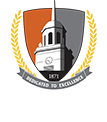
Your Creativity Connection
Both the SUNY graduate certificate and the master's degree are also offered as fully online programs available to busy professionals who wish to learn from a distance. Distance courses are a blend of synchronous (live) class sessions, asynchronous assignments, small group work, and offline group discussions. All assignments and group discussions are facilitated through Blackboard Learn, an online learning environment, as well as other online tools used to facilitate virtual interactions. While our graduate programs are offered online, all distance courses carry the same creative energy and interaction as our seated campus courses.
Sharpen your creativity and apply your imagination.
Requirements
All distance learning students begin with the graduate certificate and may apply to continue for the master’s degree. The course requirements are identical to the on campus programs, with one exception. To promote peer-to-peer learning, our distance students work in a cohort model (i.e., taking most courses with the same cohort of learners). We have learned that peer-to-peer interactions are greatly enhanced when individuals have had some work experience. Therefore, our distance programs require five years of professional experience (and truth be told, most of our distance students have much more than five years of work experience).
Instruction Method
All assignments and group discussions are facilitated through Blackboard Learn, an online learning environment, as well as other online tools used to facilitate virtual interactions (e.g., Zoom; Mural).
- Synchronous (live) class sessions
- Asynchronous assignments
- Small group work and discussions
Graduate Certificate Sequence
Developing Individual Creativity (Summer)
CRS 559: Principles in Creative Problem Solving
Theory and application of the Creative Problem Solving (CPS) process; practice in both individual and group uses for either personal or professional contexts; group work and active participation are expected.
Becoming a Creativity Facilitator (Fall 1st half)
CRS 610: Facilitation of Group Problem Solving
Prerequisite: CRS 559
Advanced strategies for leading small groups through the Creative Problem Solving (CPS) process; mastery of facilitation techniques and skills. Students receive expert feedback on their facilitation skills as they apply creative strategies to real issues. Examines conceptual relationships between facilitation and change leadership; develops basic change leadership skills.
Becoming an Agent for Change (Fall 2nd half)
CRS 670: Foundations in Teaching and Training Creativity
Prerequisites: CRS 559 and CRS 610
Practical experience in using principles of creative learning, Creative Problem Solving (CPS), and leadership to facilitate groups; guided practice and independent work in realistic teaching/training situations to develop independent learners and reflective practitioners; use of CPS facilitation skills to develop instructional designs and examine ways to modify teaching and leading with CPS in various groups or situations.
Assessing Your Creative Personality (Spring 1st half)
CRS 620: Creativity Assessment: Methods and Resources
Practical information on methods and resources for creativity assessment; review of basic measurement principles and a critique of specific tools used to assess creativity in both education and business. Students receive personal feedback on a number of measures and develop a profile of their own creative strengths.
Theoretical Foundations: Becoming a Reflective Practitioner (Spring 2nd half)
CRS 560: Foundations of Creative Learning
Theory and research that form the foundation of the discipline of creativity studies; development of awareness and understanding of basic principles, select definitions, models, and theories and practice in applying them in a variety of contexts. Group interaction, discussion, and project work are expected.
Developing Creative Leadership Competencies (Summer)
CRS 635: Creativity and Change Leadership
Prerequisites: CRS 560
Culminating activities that cap the Foundations of Creativity strand of the curriculum; understanding and applying the characteristics of change leadership in the context of creativity and Creative Problem Solving (CPS); theoretical and practical launching point for students to examine their future contributions to the field, domain, and discipline by articulating their personal philosophy and definition of creativity; relation of the CPS process and other change methods to the challenge of making lasting change in other disciplines, such as business, education, psychology, sociology, history, philosophy, or the arts or sciences.
Master's Program Sequence
Exploring and Understanding Current Issues (Fall)
CRS 625 Current Issues in Creative Studies
Prerequisite: CRS 559 or CRS 560
In-depth survey of current issues on the nature or nurture of creativity; skill development in research and scholarship to increase critical thinking skills and general content literacy of creativity practitioners in any discipline; review, analysis, and interpretation of findings from empirical and non-empirical sources, with some emphasis on the background and development of research at the International Center for Studies in Creativity.
+ 1-2 Elective Courses. You must complete a total of 3 electives by the end of the program.
Applying Your Mastery (Spring)
CRS 690: Master’s Project (3 Credits)
The Master’s project is designed to provide evidence of your mastery of the creative studies program through an applied project. It is a self-designed and directed inquiry into an area of personal interest. The range of projects is as diverse as the students engaged in them.
+ 1-2 Elective Courses. You must complete a total of 3 electives by the end of the program.

